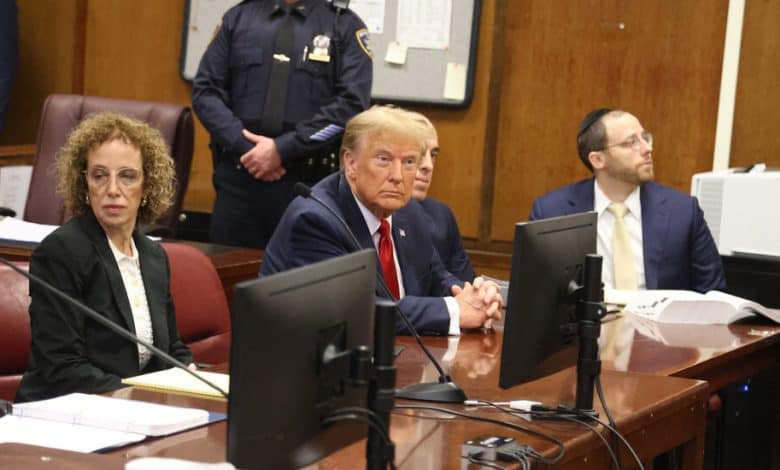For Donald Trump, the Recriminations Will Be Televised

The civil-fraud case against Donald J. Trump’s businesses in New York, in which he was ordered to pay a penalty of $355 million, was not televised. Neither was his civil trial for the defamation of E. Jean Carroll. Nor — barring an unlikely change in federal court policy — will be his looming federal election-interference trial.
But outside the courtroom, the show goes on.
In each case, Mr. Trump has sought out the cameras, or brought in his own, to offer a stream-of-consciousness heave of legal complaints and re-election arguments. In the process, the former reality-TV host and current presidential candidate has turned his many legal cases into one-sided TV productions and campaign ads.
To TV producers, because Mr. Trump is a former president, a candidate and high-profile defendant, his on-camera tirades are news. But there is also a kind of transaction at work. TV news craves conflict and active visuals. There are only so many times you can show a motorcade, or reporters cooling their heels in the street. Mr. Trump’s appearances give them sound, fury and B-roll.
At the same time, Mr. Trump gets the kind of unfiltered access to the airwaves that networks were, once upon a brief time, wary of giving a candidate notorious for fabrications and conspiracy theories.
On the day a judge set a trial date for his Manhattan criminal case stemming from a hush-money payment to a porn star, cable news networks took him live as he called the case a Biden-campaign plot to steal the election: “This is their way of cheating this time. Last time, they had a different way.”
On Friday evening, after the civil-fraud ruling, he spoke to the cameras at his home and private club Mar-a-Lago, claiming that the case (brought by the New York attorney general) “all comes out of Biden,” accusing the judge of corruption, citing his election poll numbers and lamenting that “the migrants come in and they take over New York.”
